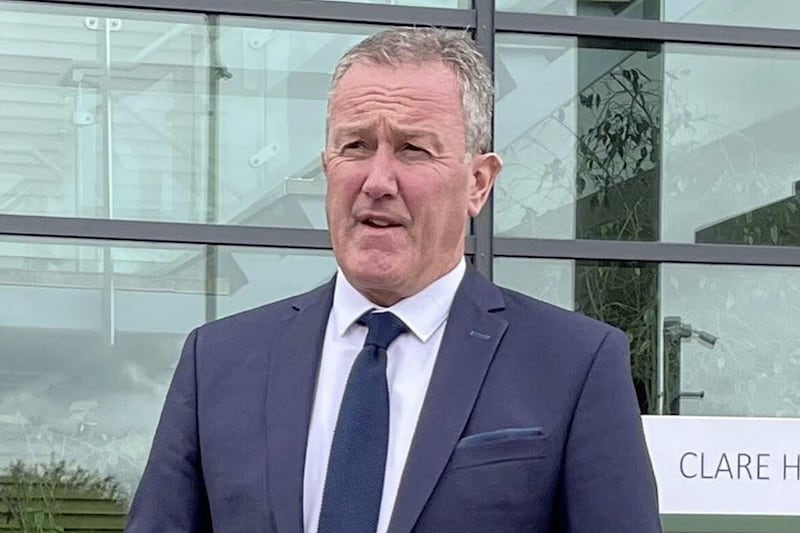It has frequently been suggested that party leaders who find themselves receiving regular expressions of sympathy know with certainty that their careers are coming to an end.
Arlene Foster was in just such a position with the DUP before she was eventually pushed into resignation and at the weekend Steve Aiken of the Ulster Unionists experienced a similar fate.
Mr Aiken had only been in post for 18 months but he had been struggling to make an impact and his departure did not come as a particular surprise.
No one else was prepared to seek the job when Robin Swann stood down in 2019, and Mr Aiken, a relatively late entrant to politics who had a well documented previous career as a submarine commander, never looked comfortable in the role.
Media interviews last month when he struggled to explain his reasons for demanding the resignation of the chief constable, Simon Byrne, over his handling of the Bobby Storey funeral, were probably the final straw for his critics.
What was surprising was that both Mr Aiken and his party made little serious effort to hold the DUP to account for its disastrous decision to endorse a Brexit process which inevitably ended in the introduction of an Irish Sea border.
Instead, the Ulster Unionists appeared happy to join with the DUP in blaming Brussels, London and Dublin for what they viewed as the unacceptable aspects of the Northern Ireland protocol.
Similar thinking was evident in the open letter issued on Friday by eight leading figures, including four peers associated with the Ulster Unionist Party, who were all involved in negotiating the Good Friday Agreement.
According to the group, which is pressing for the suspension of the protocol, it was their belief that, under the terms of the 1998 peace document, any "significant decision affecting the lives and livelihoods of all our people would require the consent of both communities here".
However, the huge weakness of their argument was that it failed to highlight the way in which Brexit imposed major changes on all sections of our divided society despite having been decisively rejected by the northern electorate in the 2016 EU referendum.
It is hardly a good sign for unionism overall that its two largest parties have both managed to lose their leaders just as the centenary of partition and the establishment of the state of Northern Ireland is being marked.







